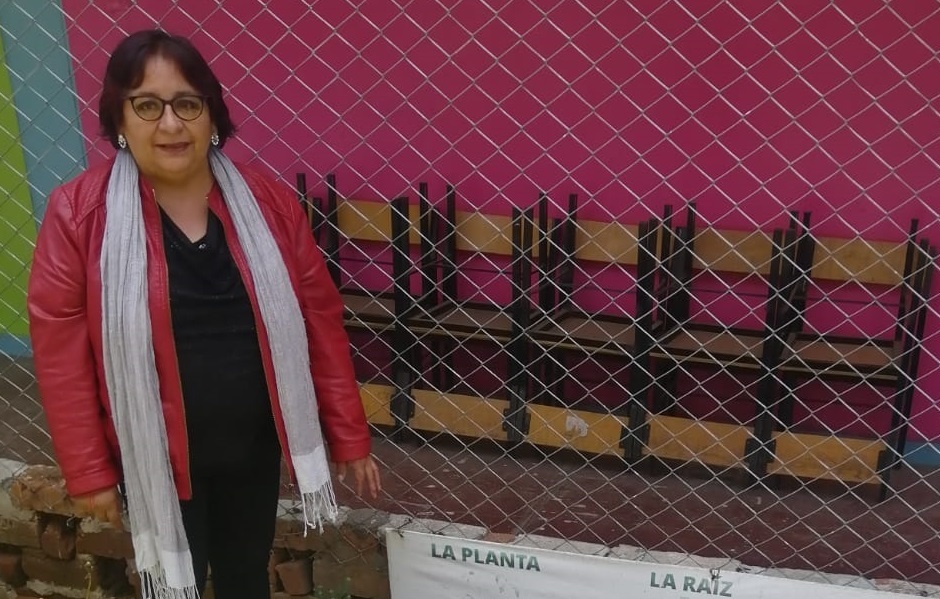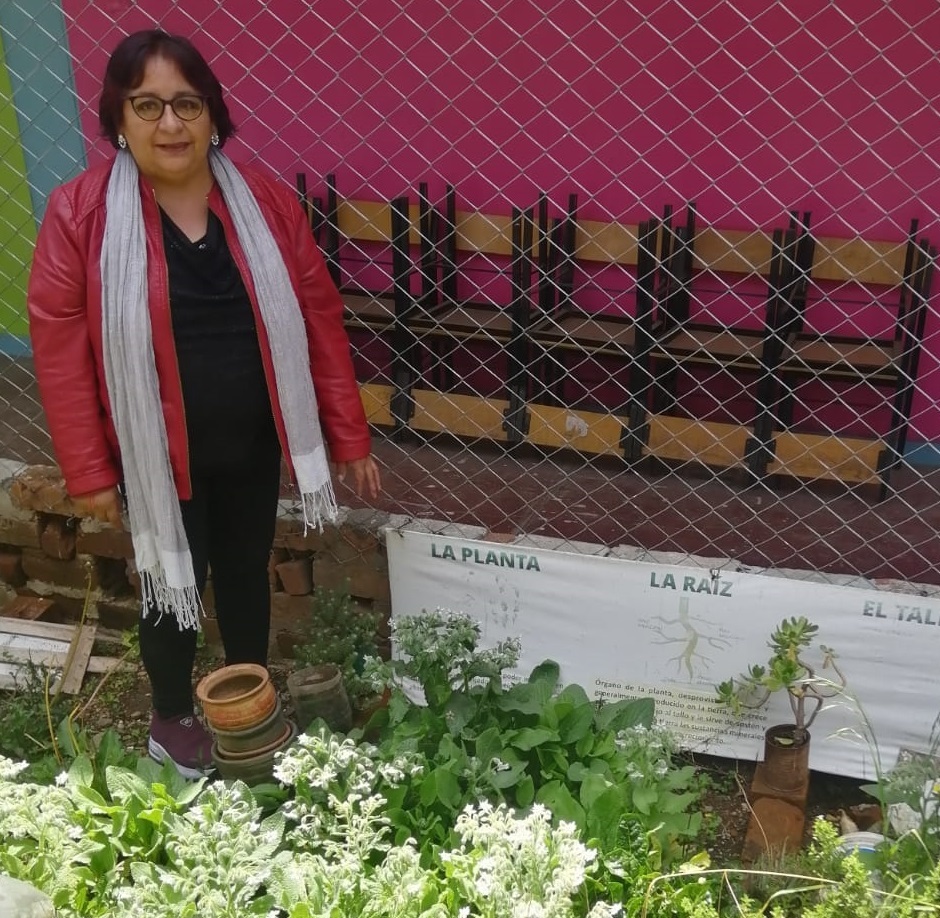Consuelo Salcedo, from the city of Huancayo, presents the experience of leading a Sustainable School in the Junín region
Paulo Beraldo
“We do our work with the conviction that we are going to improve not only the grades, but also the lives of our students and their families with teaching.” With these words, principal Consuelo Salcedo Rodríguez, from the María Fátima school center (30,057), in Huancayo, Junín, defines the work of this Sustainable School led by her since 2015.
In an interview with the RAES platform, Professor Consuelo, responsible for a school with 643 students located 300 km from the Peruvian capital Lima, defends education with elements of reality so that the learning process is more meaningful and lasting. Her school has a school garden of 60 square meters, divided into spaces for each grade. The goal is to have different learning spaces in the garden, where there are also aromatic and medicinal herbs, such as mint, parsley, and plants from the region.

But why does say that this garden is educational? “We learn the nutritional value, the planting seasons and record the data, integrating content from mathematics and science, identifying which vegetable grows faster, which land is better… We put the scientific and common names of each species , which nutrients each plant provides”, explains.
The objective is to make students know how to make healthy choices for their food and for life. “Our young people learn not only in the four walls. We want them to ask themselves: why should we eat more cereals and more vegetables? It is our role to promote these reflections.”
Rainbow
Consuelo says that the school works with the idea that the dishes should be like a rainbow: “We should use all the colors of our food. And these colourful foods, placed on the children’s tables, draw attention and invite them to eat in a healthy way”. In order to strengthen the relationship between education and health, Consuelo says that the school has a close relationship with the local health workers, which was especially useful during the pandemic period so that students and their families could improve hygiene practices. “The school needs to have strategic allies”, says.
After the implementation of Sustainable Schools in Peru, Consuelo’s school registered an increase in the weight and average height of students, thanks to better nutrition. Consuelo also says that children’s relationship with food is transferred to their homes, where they promote good habits beyond school. She highlights the cookbooks, which are an opportunity to teach families how to prepare foods in a creative way. “Over time, fathers and mothers also learned from their kids how to eat properly.”
Consuelo appreciates the fact that much of the food served is purchased locally. “This helps people and promotes social development. If we all support each other and show solidarity, we will build a better society”, she says.
Support in training
Consuelo has already participated in several activities supported by the Brazil-FAO Cooperation, which since 2012 has been developing the Sustainable Schools methodology in 13 countries in the region, including Peru, in the Junín region, since 2016. Through the Qali Warma National School Feeding Program, FAO has been supporting the training of thousands of professionals in the region, a work that gains even more strength with the Sustainable School Feeding Network (RAES).
“I would like to thank the opportunity they always give us, the trainings, so that we can move forward. FAO, Qali Warma and the Brazilian Cooperation are very strategic allies.” Thanks to the work of Consuelo and her team, the school won the national award “Bono Escuela” for its adequate and innovative management, recording improvement in learning in all areas.
The prize is given to schools that manage to fulfill 11 criteria, including advances in the quality of teaching, which have been confirmed by evaluations by the Ministry of Education. “All these actions are carried out with the conviction that students learn and apply them at home, in the neighborhood and in society.” Consuelo summarizes how she sees a Sustainable School: “The objective is to achieve learning through activities that allow autonomy and critical learning, in which students can voice their opinions and actively participate”.






